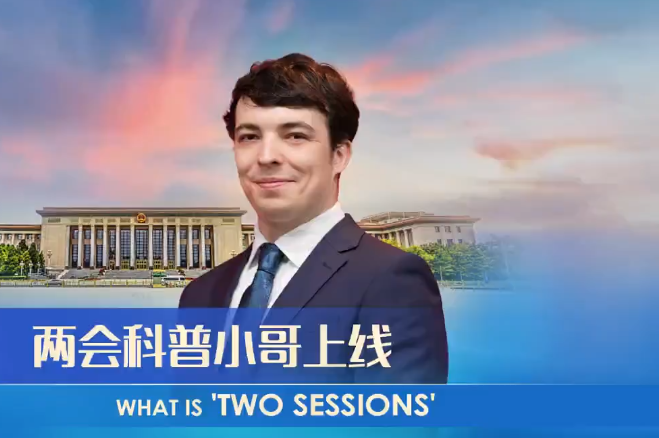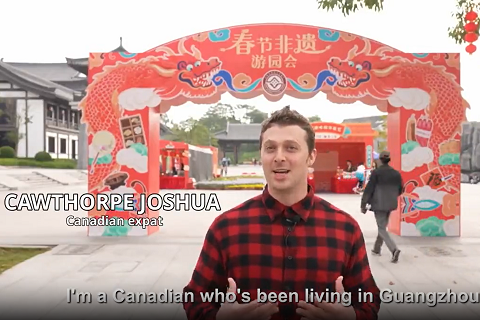Innovative Cases Impress at 6th Guangzhou Award
Winners of the sixth Guangzhou International Urban Innovation Award (Guangzhou Award) are revealed tonight. Five cities made it to the final——Bogota, Colombia; Halandri, Greece; Gwangju, South Korea; Kampala, Uganda; and Xianning, China. What kinds of urban innovation projects have helped them take home the Guangzhou Award? Let's check out.
Bogotá, Colombia: Bogotá Care Blocks – How a city is reorganizing itself for women and achieving the SDGs
It has long been recognized that women's "time poverty" is a structural cause of gender inequality. The unpaid burden of care falls disproportionately on women, which translates into women lacking economic autonomy. Women who are primary caregivers also tend to abandon higher education. They are prone to suffer from chronic mental and physical illnesses and have higher chances of experiencing gender-based violence. 30% of Bogotá's female population does unpaid caregiving full-time; 91% of this population is low-income; and 33% is deprived of free time for self-care.
In 2020, the city of Bogotá, Colombia's capital, launched its Care System to recognize, reduce and redistribute care. This initiative operates mainly through Care Blocks with an "ease-of-access" modality that provides educational, leisure and income-generation services to caregivers, while simultaneously offering professional assistance to those being taken care of – children, people with disabilities, and the elderly.
The initiative also includes a cultural change strategy, a "Care School for Men", so that men can learn to recognize care, and distribute care more equitably within the household. As a result of this initiative, which provides childcare and a laundry service, caregivers have gained a total of 4 hours daily to study, generate income, or rest.
Chalandri, Greece: Cultural H.ID.RA.N.T. (Cultural Hidden IDentities ReAppear through Networks of Water) — Ancient engineering of sustainable water management meets urban innovation through citizens' participation
This initiative aims to activate local hidden heritage and resources in order to enhance citizens' well-being. It focuses on the re-introduction of the Hadrians aqueduct, a subterranean Roman-times infrastructure, into city life beyond the usual "sightseeing" offer to demonstrate and communicate its cultural heritage and ancient technical approaches alongside its role as a historic monument, contemporary landmark, unexploited water resource and piece of urban infrastructure.
Along with the repositioning of the aqueduct, the initiative promotes green urban policies and sustainable water management. It creates new quality green public spaces by regenerating four Halandri neighborhoods, while the aqueduct, which is still operational, is re-utilized for irrigation purposes, thus replacing the use of potable water that was used before.
Through participatory and inclusive processes, Chalandri communities are revitalized by becoming active around heritage, and the local economy is strengthened via endogenous and resilient development rather than relying on tourism, which puts pressure on the city's resources and jeopardizes a sense of community and belonging.
Kampala, Uganda: An innovation for pit-emptying services using a GIS-enabled application
Kampala, the capital city of Uganda, has a resident population of 1,738,000, but it fluctuates to over 4,000,000 during the day as people from surrounding areas commute for work, business, and various activities in the city. Over 60% of this population lives in informal housing, while only between 10% and 15% of the city is connected to the formal sewerage system. 90% of the population relies on the on-site sanitation model, making waste-emptying services unavoidable for many residents. Accessing emptying services was a challenge as many had to visit the offices physically to receive the service which was offered on first-come first-serve basis after proof of payment submission. Pit latrines and septic tanks are often emptied haphazardly into the environment by unregulated vendors providing these services.
It is within this context that the Weyonje App was developed and introduced. Citizens can use the app on their mobile phones to order emptying services that are monitored until the sludge is successfully delivered to the regulated dumpsite. Citizens without smartphones, especially those living in poor informal settlements, have the option to contact the Village Health Team (VHT), which requests the service on their behalf using the Weyonje Village Health Team Application.
The App ensures that the faecal sludge is safely transported and managed at the treatment plant. Data from the App feeds digitally into the city's data management dashboard enabling the city to track progress and gaps in the emptying service.
Gwangju, Republic of Korea: GwangJuness Community Care
"No citizen is left out" is not just a slogan for the city of Gwangju. The previous caregiving system in Korea selected beneficiaries based on age and income, and only supported those who were eligible to make an application. To address this gap, Gwangju has created an innovative care model, Gwangjuness Community Care, for anyone who needs care.
Dong-office (smallest administrative division) care managers visit individuals in their homes, check their situation, and apply for needed services. Gwangju has launched 16 new care services and plans to inject US$7.74 million annually to encourage citizens facing economic hardship to take advantage of these care services. "Care Call" has been launched as a single application channel to increase convenience.
To ensure implementation, Gwangju has established a "dedicated division," designated 320 care managers, and selected 38 private sector care service providers.
Xianning, China: Enhancing traffic safety near schools through a child-friendly collaborative construction and sharing approach
In the Chinese city of Xianning, inadequate municipal utilities used to cause problems such as the coexistence of people and vehicles in the same way, muddy roads on rainy days, and the lack of traffic lights. In order to address these problems that hinder children from getting to and from school safely, Xianning has put forward an effective and efficient "government + enterprise + community" cooperation program. It also represents a holistic approach that promotes not only the infrastructure construction, but also the participation and involvement of active stakeholders at the local level.
The project was spearheaded by the Xianning city government, and broke down departmental divisions by involving seven municipal departments, design institutes, schools, communities, and relevant companies. Through measures such as using franchise model, adjusting land use, separating pedestrian and vehicles, introducing walking-bus routes, and establishing various waiting areas, the initiative successfully transformed the streets around the school into safe and high-quality shared community spaces and co-built garden.In addition, a series of social practice activities intended for students have been organized for the improvement of the surrounding environment of school, so as to build the ideal campus and safe roads for children.
Since the initiative started, the proportion of students walking to school has increased from 30% to 95%. 100 parent volunteers operates four designated walking routes to school, resulting in a significant reduction in the number of nearby traffic accidents from over 50 to just one. This innovation has been rapidly extended to 20 schools, generating substantial social impact both domestically and internationally, with recognition and promotion by the UN Habitat and the UNICEF.
Copyright © Foreign Affairs Office of Guangzhou Municipal Government,
Hong Kong and Macao Affairs Office of Guangzhou Municipal Government All rights reserved.
Presented by China Daily.
京ICP备13028878号-28















